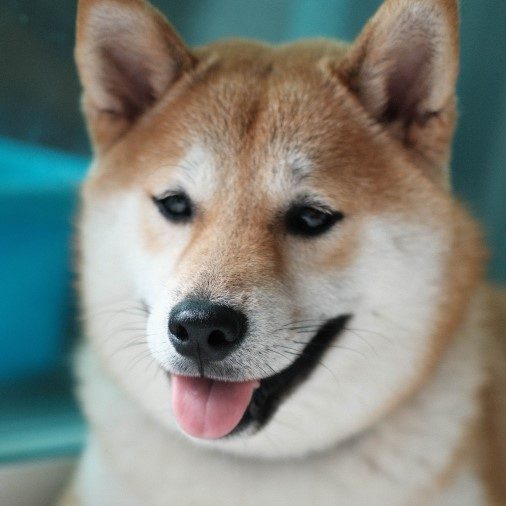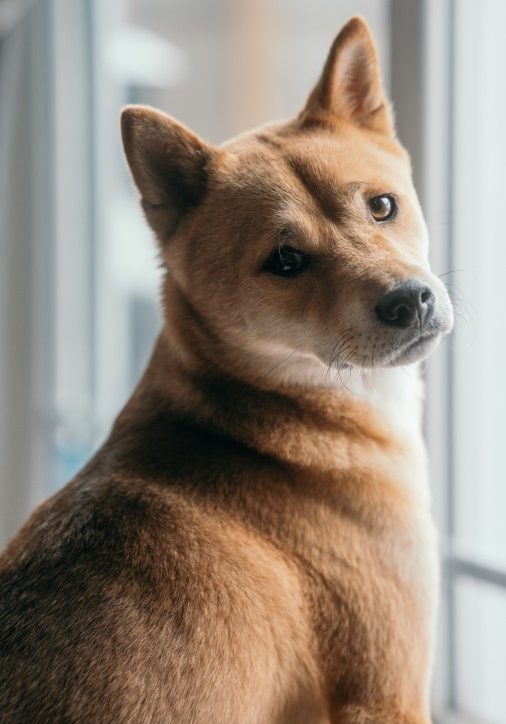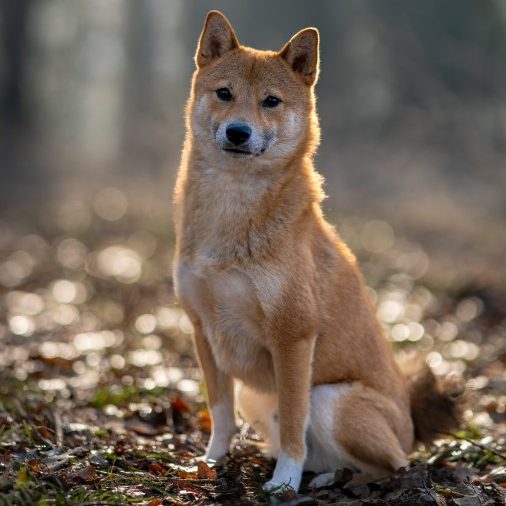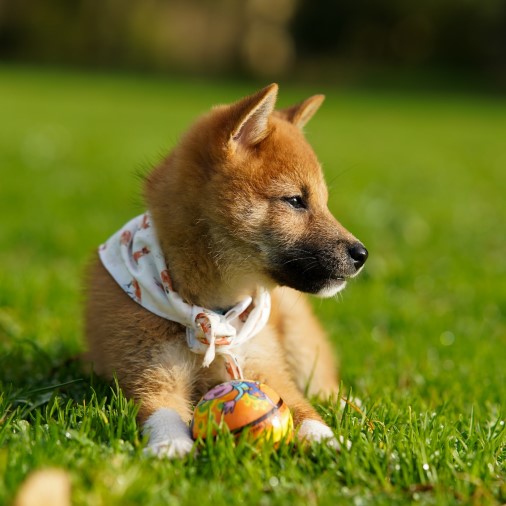Shiba Inu Dog Breed Guide
Topics Covered:

 Greencross Vets
Greencross Vets
Topics Covered:
The Shiba Inu is a purebred dog that originates from Japan. It is the smallest member of the Spitz family. Having been around since 300 B.C.E, they are considered to be one of Japan’s oldest dog breeds. The Shiba Inu lived in the mountainous areas of the Chūbu region.
Known for their natural alert and attentive nature, they were bred as hunting dogs, finding and retrieving small game and birds for hunters.
The word “Shiba” means brushwood, the name of the bushes in which they hunted. “Inu” is used in Japan to describe any small breed of thick-coated agile dog.
During the Second World War, the Shiba Inu almost became extinct, dying due to bomb raids or after the war from distemper, an extremely contagious virus. The surviving Shiba Inu’s were brought into the city from the remote countryside, where the breed was revived.

The Shiba Inu is a traditional hunting dog breed, so naturally have an intelligent, sociable, and loyal personality. They can be strong-willed and independent. With early exposure to people and training, a Shiba Inu can get along with the whole family and become less hostile towards strangers.
Shiba Inu’s are colloquially known to have a similar temperament to cats, as they are generally aloof and independent. They like having company around the home, however they generally do not need (or want) a lot of affection.
Shiba Inu’s are very clean, making them easy to toilet train as they naturally dislike soiling their own living spaces. Their natural watchdog abilities also mean they may be inclined to inform you when there are strange noises or people around the house as they are often on high alert.
As an incredibly intelligent breed, they have the ability to learn many obedience skills, however they may only obey you when it suits and makes sense to them. Due to their stubborn nature, they are also prone to aggression issues including food aggression, dog to dog aggression, and stranger aggression. This requires significant patience while training and is often better suited to an experienced dog owner. While training them, it is important to make the most of their food motivated nature by providing plenty of positive reinforcement.

A Shiba Inu’s growth and size varies depending on their gender. Female Shiba puppies (3 months old) will be between 3 and 3.9kg growing to between 6.8 and 9kg, with a height of 34-39 cm, at maturity.
Some common and possible diseases to look out for in Shiba Inu’s include:
Shiba Inu’s can be suitable for apartment living due to their extremely clean nature and being easy to housebreak. They are great indoor dogs, as despite being independent, they enjoy being close to their family and find themselves calm and relaxed indoors. Provided they are allowed adequate physical exercise and mental stimulation, they should leave your belongings in one piece.
They are known for their range of vocal stylings. Although they do not bark a lot, they are known to produce a high-pitched, loud scream to get your attention.This can be properly handled with a consistent training regime.
Shiba Inu’s can be left alone for short periods of time, so long as they are appropriately exercised before and after, as well as being mentally stimulated while they are alone. Without chew or puzzle toys boredom may manifest in destructive behaviours.

Shiba Inu’s are a smaller breed and therefore generally require less food, making it even more important to stick to a complete and balanced premium dry food blend to support their active lifestyle.
Their food needs to contain balanced levels of protein, fat and carbohydrate plus vitamins, minerals, and antioxidants for health and wellbeing. It is always recommended that you make an appointment with a vet to discuss an appropriate well-balanced diet for your pet, as all pets will have differing needs.
While they are still a puppy it is advisable to feed them life-stage appropriate small puppy food. Puppies will require a diet higher in calcium and as they grow older, they will require a diet richer in proteins. Use the Petbarn Food Finder to help find the best nutrition choice for your pet.

Shiba Inu’s are generally clean dogs which can make them relatively low maintenance. However, Shiba’s are capable of large amounts of shedding, predominantly during Spring and Autumn, while their coat does not require trimming.
It is recommended to brush your Shiba once a week to remove the extra hair. Additionally, their nails should be cut regularly, and their teeth brushed daily to prevent bad breath and common mouth diseases.
Shiba Inu’s have a fluffy double coat, meaning they have a layer of long, coarse guard hairs on top protecting a second layer of shorter, fluffy undercoat beneath. Their natural colouring is reddish brown with cream markings; however, they can also have the coat colours black sesame, sesame, black and tan, and cream.
Shiba Inu’s are also known for their distinguishing curled tail, curling upward towards their back.
Shiba Inu’s have the potential to be great family pets, so long as they are properly trained and socialised. Despite not being the most affectionate breed, they still create strong bonds with their family and can be very loyal and protective.
Shiba’s are unlikely to get along with other dogs of the same sex. They can however, live harmoniously with other pets who do not challenge them and allow them to take the lead role in the household.
With a good diet and appropriate exercise Shiba Inu’s are generally healthy dogs and will live between 12 and 15 years.
Male Shiba Inu puppies grow up to be 37 – 42 centimetres tall while females stand up to 34 – 40 centimetres tall.
Shiba Inu’s are independent dogs who don’t require constant attention, though if they are going to be left alone during the day, they require plenty of exercise and mental stimulation.
Shiba Inu’s benefit from weekly brushing and a bath every 3-4 months. Teeth cleaning daily helps to maintain their teeth.
Shiba Inu’s are an intelligent and independent breed, which means they can be stubborn and resistant to training. They can be more challenging for first time owners who are not experienced with dog training. Despite this they are generally very friendly, outgoing, and loyal animals.
Shiba Inu’s are very strong-willed and stubborn and do not respond well to activities that do not make sense to them. This makes Shiba’s one of the more difficult dog breeds to train.
Shiba Inu’s require minimal grooming and do not shed continuously – however, they do shed heavily twice a year, during Spring and Autumn.
At Greencross Vets, nothing is more important than the health and wellbeing of your four-legged friend. If you have any more questions, please reach out to your local Greencross Vets. You can find your local Greencross Vets here. We are more than happy to help!
Or if you’re looking to adopt, find your new best friend with Petbarn adoptions.